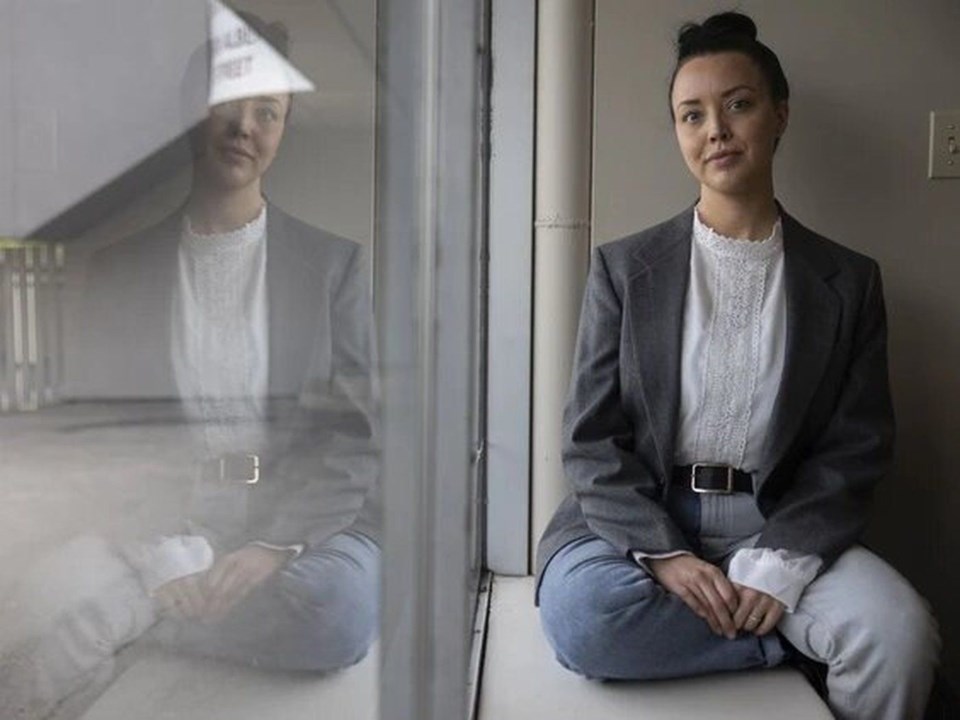SASKATOON - As Saskatchewan moves into a new phase of the pandemic, Dan Shier with Queen City Pride is one of many organizers reflecting on how celebrations have changed in the last two years.
The co-chair has watched how virtual programs made it easier for some people — including those living in rural areas — to participate in Pride and find community.
“It pushed us to look for new opportunities and new ways of engaging with our community, and I think a lot of positives came out of that, because of how we could ... reach different audiences that maybe weren’t able to engage with Pride otherwise.”
But the pandemic hasn’t just changed how Saskatchewan’s largest cities celebrate Pride.
In Meadow Lake, a small city 300 kilometres north of Saskatoon, the pandemic has highlighted a real hunger for local queer community events.
The community of just over 5,000 people raised a Pride flag for the first time in 2019. This year, the event was much larger and drew an enthusiastic crowd.
Meadow Lake is one of many small Saskatchewan communities — along with Big River, Ahtahkakoop Cree Nation, and more — holding Pride month events for the first time this year or dramatically expanding their celebrations.
“We’ve got a whole month of things planned — family-friendly things, queer-people-only things,” said Meadow Lake Pride committee president Jo Metz.
“We’re getting things out into our community to have stuff to do, because that’s one of the things about small cities; people say ‘oh, there’s never anything to do.’ But there’s no excuses this month.”
Meadow Lake Pride has used the expanded digital offerings over the last two years. Metz is particularly proud of the group’s partnership with the Northwest School Division and OUTSaskatoon to offer virtual presentations about LGBTQ2S+ terminology and identity for parents.
“Education is key, so it’s great to have those partnerships in place,” said Metz.
But after two years of mostly virtual programming, Metz says there has been “a ton of enthusiasm” among people in the community to put on events and have a bigger local Pride celebration than ever before.
“It’s more than I had ever imagined,” said Metz. “I’m so excited about the amount of people that have come together and shown support in the community.”
For LGBTQ2S+ people in rural Saskatchewan, the impact of expanded virtual and digital offerings goes far beyond one month of Pride celebrations.
Social worker and therapist Emily Ritenburg, who specializes in working with queer people in rural Saskatchewan, says the rapid expansion and acceptance of virtual mental health care over the last two years has been a boon for many of their clients.
“What’s been really interesting about that is the unexpected numbers of people who are reaching out for these services who indicate that they probably wouldn’t be accessing these services, or they — God forbid — wouldn’t be coming out at all, if this wasn’t virtual,” said Ritenburg.
Ritenburg launched her counselling practice in May 2021 — and quickly had to add three more mental health professionals to the group to meet demand.
“There are so many queer people in rural areas who are just lacking access to services and community,” said Ritenburg. “It’s an area that’s very underserved.
“[And] it turned out that a lot of adults were reaching out for services — more so than youth. There are a lot of alienated queer adults who are living in secrecy and still functioning under some really intense stigma, more so than we see in urban areas.
“There’s still a lot of stigma and difficulties in urban areas, but we’re dealing with a completely different level and different experiences in rural areas.”
But Ritenburg says, though virtual services like theirs are important and need to stay, that’s not enough — in-person care and community is needed as well.
“We shouldn’t use the accessibility of virtual services as an excuse to not expand in-person services,” she said.
Other queer organizers throughout Saskatchewan agree.
In Meadow Lake, Metz hopes to build on this year’s successes and offer the community even more events — in person and online — next year.
In Regina, Shier wants to ensure that Queen City Pride is able to foster all the relationships that have blossomed over the last two years and make Pride more accessible with every passing year.
“We don’t want to forget the lessons we’ve learned,” he said.



